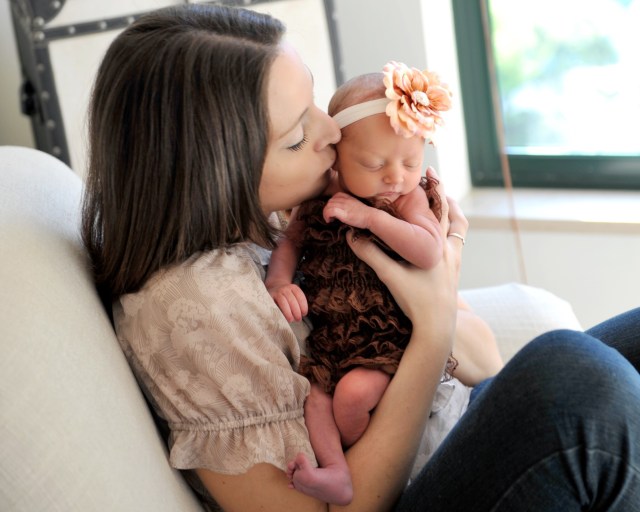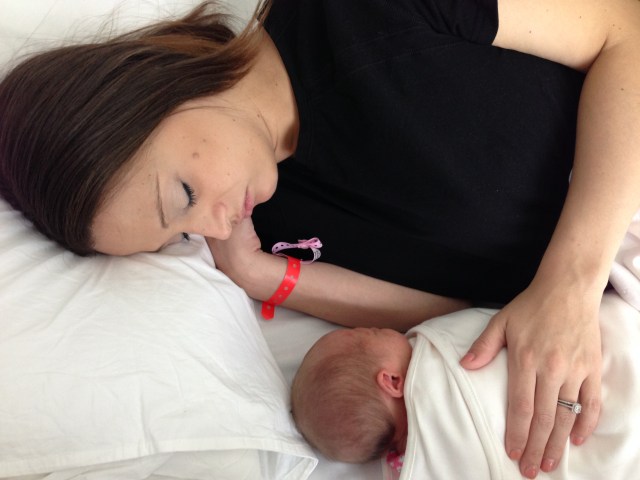I have been a Mother for 2.5 years now. It really does require complete patience. Being a Mother is the most unselfish thing I have ever done in my life. I am constantly thinking of someone else. Not just someone else. Someone who kind of resembles me!
Before Samantha was born, Peyton and I would take naps when we wanted, stayed out until we got tired, and didn’t have to feed anyone but ourselves. I had gotten pretty used to just taking care of only one person. I was great at it. I had ME down to a T! After Peyton and I got married and after loads of discussion and prayer we decided we wanted to do something mind-blowing. We desired a baby. We felt good about our decision and went forward with design. The day I found out I was with a child was a day I will never forget. In two minutes time I was a transformed lady. Was I really ready to feed, bathe, and comfort a tiny human 24 hours a day? Good thing you have 9 months to organize yourself, Catherine. Get going.
And I did. I read the books. I watched the birthing videos. I cried after watching the birthing videos. I found a doctor I liked and visited her routinely. I ate good foods. (And too much ice cream). I did prenatal yoga. I packed my hospital bag 2 months before I needed to. I typed up a birth plan. I downloaded an app that timed contractions. I worried. I cried. I was ecstatic and prepared.
Or so I thought…labor was a mind trip. The thoughts running through my mind were comparable to that of a schizophrenic. “This is incredible.” “I am doing this.” “Why did I do this?” “I want to go back.” “That hurts.” “That feels good.” “I am a freaking rockstar right now.” “I want to die.” Why, oh why, don’t people tell you these things? Labor is outrageous, stunning, ridiculous, delightful and downright natural. I remember (vividly) Peyton running around calmly asking the Doctor questions only an engineer would think to ask. What are the advantages of breaking her water? How many heartbeats a minute are we at? At what level are the contractions? What are our alternatives at this moment? Is that instrument there for a precaution or application? I literally thought my Husband was going to excuse himself to the restroom and come back in full doctor uniform. He had done his coursework and he was set! In all honesty, the birth was faster than we anticipated. I didn’t even have time to think about turning back before she was lying on my chest. I am pretty sure I wouldn’t have been able to turn back, anyways. Fast-forward to the next few days, which are extremely tough to remember. What I DO recall was that there were many diapers, cries (not just Samantha’s) numerous smiles and nights where Peyton and I just stood looking at this petite screaming human thinking, what the heck do we do here?!
The days turned into weeks and little by little I was getting the hang of it. I was as surprised as anyone when I realized the difference between a hunger cry versus a tired cry. One day I put an extra pair of clothes in the diaper bag. That was also a day where she decided to have a major blowout. Coincidence? I think not. That’s noble training, right there.
The thing is, Samantha was teaching me things I had never learned in any of my college courses. I felt almost as if she were giving me the lengthiest, toughest final exam of my life. I don’t think I am going to get straight A’s. But, when I rock this pint-size sweetie to sleep and she smiles up at me with her pudgy cheeks, I realize I am completely passing this test.



















